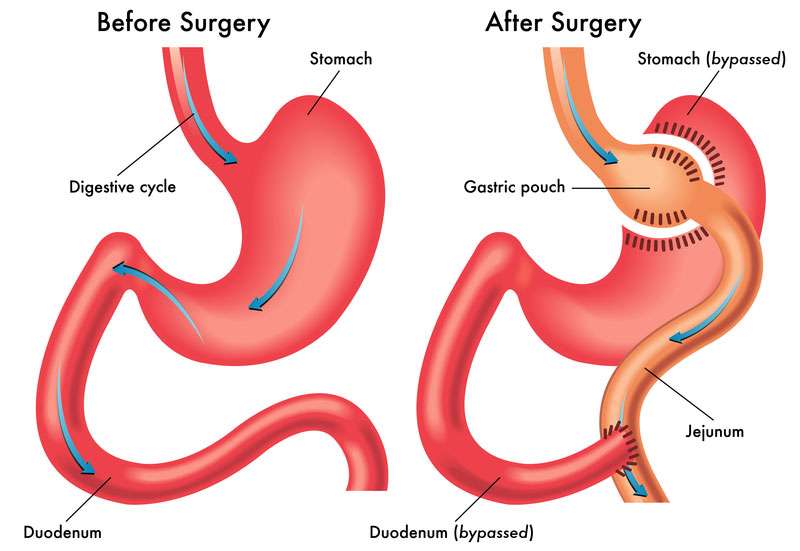At the UCLA Center for Obesity and METabolic (COMET) Health, we are actively conquering the obesity epidemic through research and advanced surgical treatments, including gastric bypass and sleeve gastrectomy surgery. Here, we understand that obesity is not simply a weight problem, but a chronic condition affecting your entire body. Our team of experts offers award-winning care and the support you need to successfully manage and overcome obesity and its related health problems.
What is Gastric Bypass Surgery?
Gastric bypass surgery is a type of bariatric, or weight loss, surgery. During gastric bypass surgery, your physician makes changes to your stomach and small intestine to change the way they absorb and digest food.
Gastric bypass aids weight loss by:
- Restricting the amount of food that your stomach holds
- Limiting the amount of calories and nutrients your body absorbs
- Changing your gut hormones, which help you feel fuller longer, contribute to appetite suppression and the reversal of obesity-caused metabolic syndrome.
What is Roux-en-Y Gastric Bypass?
Roux-en-Y gastric bypass is considered the ‘gold standard’ of weight loss surgery. It is the most commonly performed bariatric procedure worldwide. During Roux-en-Y gastric bypass surgery, your surgeon:
- Makes a small stomach pouch – about the size of an egg – by dividing the top of the stomach from the rest of the stomach.
- Then, the small intestine is divided, and the bottom end of the divided small intestine is brought up and connected to the newly created small stomach pouch.
- In the end, the top portion of the divided small intestine is connected to the small intestine further down so that the stomach acids and digestive enzymes from the bypassed stomach and first portion of your small intestine will eventually mix with the food.
Is Gastric Bypass Surgery Right For Me?
Gastric bypass surgery’s advantages include:
- Very good short term weight loss (60 to 80 percent excess weight loss)
- Lasting, long term results. The data show that up to 20 years after surgery, most patients maintain more than 50 percent of their excess weight loss.
- Excellent resolution of obesity-related health problems
Read the full article here.



